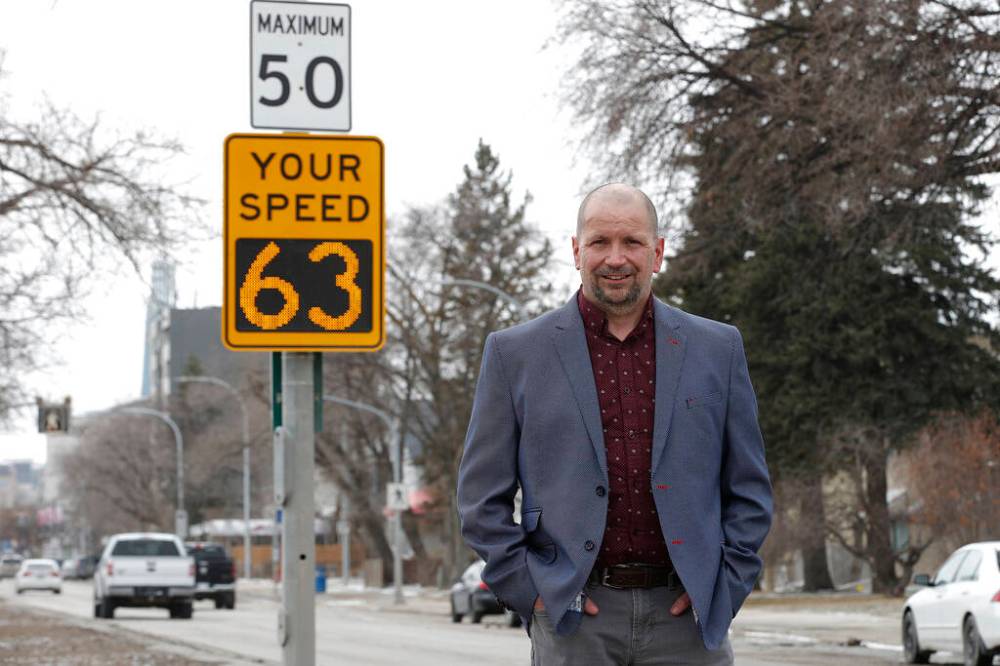City stirs up residential grey water systems talk
Advertisement
Read this article for free:
or
Already have an account? Log in here »
To continue reading, please subscribe:
Monthly Digital Subscription
$0 for the first 4 weeks*
- Enjoy unlimited reading on winnipegfreepress.com
- Read the E-Edition, our digital replica newspaper
- Access News Break, our award-winning app
- Play interactive puzzles
*No charge for 4 weeks then price increases to the regular rate of $19.00 plus GST every four weeks. Offer available to new and qualified returning subscribers only. Cancel any time.
Monthly Digital Subscription
$4.75/week*
- Enjoy unlimited reading on winnipegfreepress.com
- Read the E-Edition, our digital replica newspaper
- Access News Break, our award-winning app
- Play interactive puzzles
*Billed as $19 plus GST every four weeks. Cancel any time.
To continue reading, please subscribe:
Add Free Press access to your Brandon Sun subscription for only an additional
$1 for the first 4 weeks*
*Your next subscription payment will increase by $1.00 and you will be charged $16.99 plus GST for four weeks. After four weeks, your payment will increase to $23.99 plus GST every four weeks.
Read unlimited articles for free today:
or
Already have an account? Log in here »
Hey there, time traveller!
This article was published 06/06/2022 (1280 days ago), so information in it may no longer be current.
So-called “grey water” systems could let Winnipeggers use some of their water twice, cutting costs and conserving a precious resource, according to supporters.
Yet, others warn such systems can be complicated and could make people sick or harm the environment if not properly maintained.
In a grey water system, water that has already been used once without contact with sewage, such as in sinks and bathtubs, can be used again, most often to flush toilets or water lawns.

A local business owner said he’s received many requests to implement the technology in Winnipeg, where he believes it would have numerous benefits.
“A lot of (sewage treatment demand) would be mitigated if we reduced our deposits going out of our house(s). Grey water does that because now your sink water doesn’t leave your house right away, it gets used again,” said Josh Friesen, co-owner of Dueck Builders.
While the City of Winnipeg doesn’t allow grey water systems, Friesen hopes that stance will change soon.
“I think that there’s a lot of good reasons for this to be approved and (a lot of) demand, especially for our eco-conscious and environmentally friendly customers.”
The idea is being tried elsewhere. The City of Guelph offers a $1,000 rebate to residents who install grey water systems that collect shower/bathtub water to reuse to flush toilets. The city’s website says homeowners could use up to 30 per cent less water by installing such systems.
Friesen said indoor reuse options often require some form of filtering or other partial water treatment, possibly with holding tanks, that removes soap and other particles prior to the second use.
Coun. Shawn Nason is asking the City of Winnipeg to study how such systems could be approved through a permit process for both single- and multi-family homes. If his motion succeeds, a report on the matter would return to city council.
“This is an opportunity to positively affect our environment, to lessen the amount of water that we are using and… be able to repurpose it for use again,” said Nason. “The technology is there, it’s being used in other centres.”
However, city officials have multiple concerns about allowing such systems.
“There’s a fear of contaminated water getting back in with the household regular water supply. You would (also) be producing less (sewage per house) but it would be more concentrated. What impact does that have on the (sewage) system?” said Coun. Brian Mayes, head of council’s water and waste committee.
Mayes noted the effluent concerns stem from the fact much more of a household’s water would run through a toilet and mix with sewage before it leaves a home, sending wastewater that’s less diluted to treatment plants.
In an email, a Winnipeg water and waste spokesperson said grey water systems are usually interconnected with treated water systems, creating the risk of contamination, which is especially dangerous for children, pets and immunocompromised people.
“Grey water can contain chemical and biological contaminants that may be a threat to human and pet health and must be considered in its application. These systems require an ongoing commitment to maintenance by the homeowner,” said Lisa Marquardson.
Marquardson added such systems could also damage the environment, since grey water diverted outdoors could contain chemicals from cleaning supplies that alter plants and/or soil.
However, Mayes said he’s also interested in studying the idea, noting the city has rejected some development plans in recent years due to the risk the new construction would overwhelm sewage capacity.
“It’s worth a study, but it’s not quite as simple as it seems.”
The water and waste committee is set to discuss the matter Tuesday.
joyanne.pursaga@freepress.mb.ca
Twitter: @joyanne_pursaga

Joyanne is city hall reporter for the Winnipeg Free Press. A reporter since 2004, she began covering politics exclusively in 2012, writing on city hall and the Manitoba Legislature for the Winnipeg Sun before joining the Free Press in early 2020. Read more about Joyanne.
Every piece of reporting Joyanne produces is reviewed by an editing team before it is posted online or published in print — part of the Free Press‘s tradition, since 1872, of producing reliable independent journalism. Read more about Free Press’s history and mandate, and learn how our newsroom operates.
Our newsroom depends on a growing audience of readers to power our journalism. If you are not a paid reader, please consider becoming a subscriber.
Our newsroom depends on its audience of readers to power our journalism. Thank you for your support.

